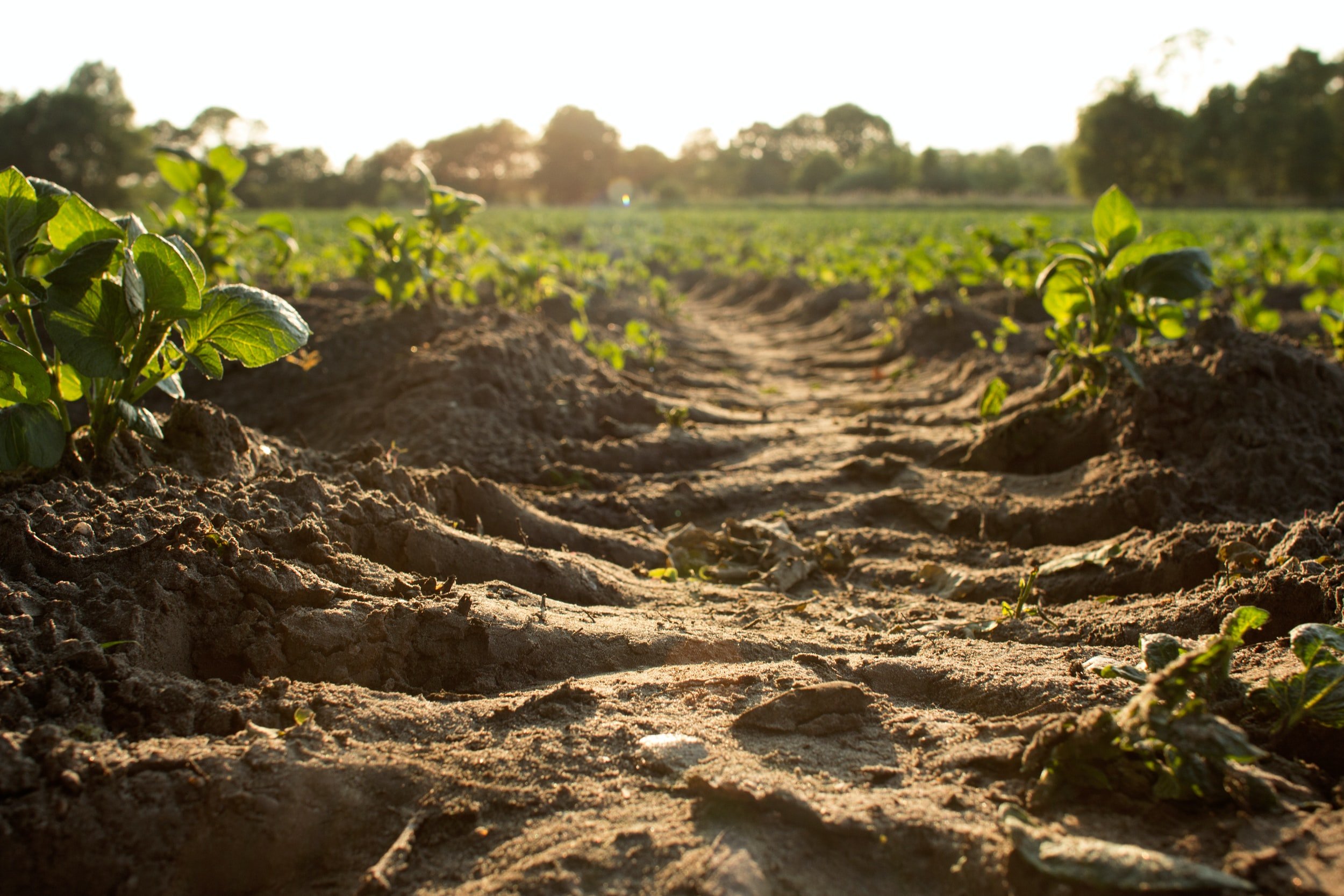Why is Soil Important to Humans?
Soil health has been proven to be directly linked to human health. The vast majority of our food either comes from plants grown in soil or animals that eat those plants.
Soil also has the ability to filter and clean water. On the other hand, soil that has been polluted runs off into sewers and contaminates municipal water supplies.
How Does Soil Affect Our Food?
Just because a plant produces fruits or otherwise reaches maturity doesn’t mean it’s as nutrient-rich as it has the potential to be. The healthier the soil, the more able plants are to access nutrients.
Because of degrading soil quality, our food is becoming less nutritious. This is leading to a decrease in overall human health and is one reason we often have to supplement with vitamin pills.
Food crops, like any other plants, also uptake pollutants like heavy metals, synthetic chemicals, and microplastics. So when the soil is polluted, so is our food.
A recent study found almost 80% of participants had microplastics in their bloodstreams. While the impacts of this are just now being explored and the causes are likely wide and varied, food is most definitely a factor.
Why Does Poor Soil Cause Less Nutritious Food?
It’s no secret that plants need soil to grow. But the specifics of how soil actually works are newly understood and more complex than you might think. Our understanding of soil is rapidly changing and evolving.
Most soil actually has all of the nutrients that a plant could need. However, factors like a lack of microbiology and watering with heavily mineralized tap water can prevent plants from accessing nutrients.
Healthy soil is alive - it’s full of a diverse set of microorganisms that perform countless functions. One of these functions is to communicate with plants about the nutrients they need, go find those nutrients, and bring them back to the plant.
Plants also directly consume microbes through their roots.
Mycorrhizal fungi provide up to 80% of the nutrients and water that plants need. However, poorly managed soil can not maintain mycorrhizae.
Soil microbiology also has a direct effect on human health. The microbes living in soil are similar to the microbes in our bodies, specifically the gut. We heavily rely on them for our immune health and even mood regulation. Consuming food grown in soil with a healthy and diverse microbiome likely improves our overall health.
How Does Soil Affect Climate Change?
Soil has the potential to be an incredible ally in the fight against climate change. Soil serves as a carbon sink more than 3x larger than the atmosphere. Through photosynthesis, plants breathe in carbon dioxide and release it as carbon into the soil. Carbon improves soil and grows healthier plants, whereas atmospheric carbon dioxide is a major contributor to the greenhouse effect.
When soil is disturbed, eroded, or otherwise depleted, carbon is released back into the atmosphere as Co2.
Not only is excess Co2 causing climate change, but global oxygen levels are at an all-time low for recorded history. It goes without saying that oxygen is essential to life on Earth.
Plants exhale oxygen during photosynthesis. However, plants are not reaching their full photosynthetic potential when growing in damaged soil, nor are there currently enough plants growing.
The lack of oxygen is also caused by the effect of soil erosion on the oceans. Large amounts of soil have fallen into our oceans, causing a change in the water pH. This acidification is killing the coral reefs which produce about 1/2 of the world’s oxygen.
How Does Soil Affect Water Supplies?
Polluted soil results in polluted waterways - both natural and municipal. When we spray lawns, yards, farmland, etc. with synthetic chemicals like pesticides, herbicides, and fertilizers, rainfall causes runoff into nearby water bodies.
These chemicals are difficult to remove during the filtration process, therefore traces of them end up in our drinking water. The same goes for microplastics and other pollutants.
Soil has the ability to naturally filter and clean water. However, the soil needs to be healthy to perform this function.
Along with filtration, healthy soil is also able to retain enormous amounts of water. This is crucial for both drought and heavy rains.
During drought, healthy soil can hold the moisture needed to grow plants. With enough soil organic matter, it can even retain the morning dew.
During heavy rain, healthy soil absorbs excess water and prevents flooding. Soil is not supposed to puddle! Puddling is a sign of damaged soil. Floods are becoming increasingly problematic in many regions of the world, destroying property and infrastructure. Soil regeneration is a simple and natural solution to flooding.
Humans Need Healthy Soil
In conclusion, we cannot survive as a species without healthy soil. It’s necessary for our food, water, and the health of our planet. However, due to poor soil management over thousands of years, we only have about 60 harvests left before all of the world’s topsoil has eroded away.
It is essential that we start implementing regenerative soil practices on a large scale as soon as possible. Even if you’re not a farmer, this can start in your yard.
Is your yard reaching its full potential?
Expert advice and actionable steps to regenerate the land you live or work on.





